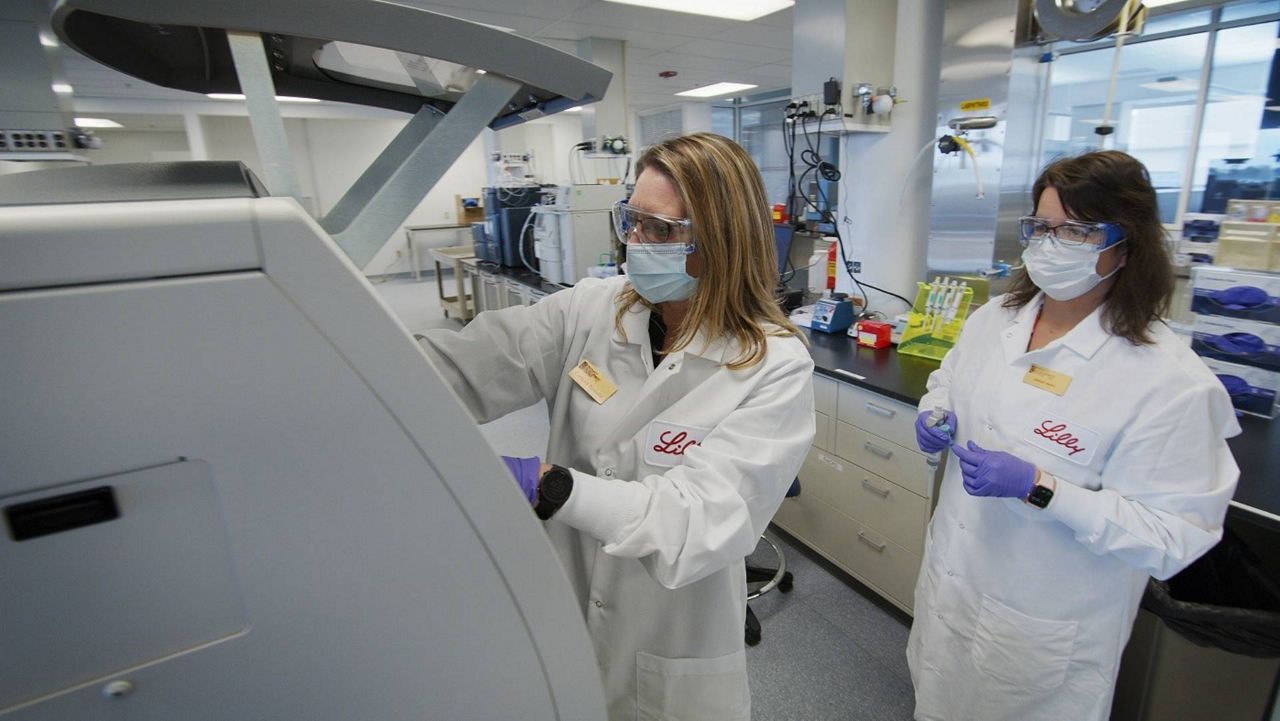LOUISVILLE, Ky. — University of Louisville researchers are looking at a treatment that could reduce the risk of COVID-19 transmission in long-term care facilities. The researchers are working with Eli Lilly and Company in a clinical trial examining its monoclonal antibody treatment, bamlanivimab.
What You Need To Know
- University of Louisville researchers are looking at a treatment that could reduce the risk of COVID-19 transmission in long-term care facilities
- Researchers are working with Eli Lilly and Company in a clinical trial examining its monoclonal antibody treatment, bamlanivimab
- Phase 3 trial includes residents and staff who live or work at facilities that have recently had a diagnosed case of COVID-19 and who are now at a high risk of exposure
- Study included Essex Nursing and Rehabilitation Center in Louisville
The Phase 3 trial includes residents and staff who live or work at facilities that have recently had a diagnosed case of COVID-19 and who are now at a high risk of exposure.
"The study, which included Essex Nursing and Rehabilitation Center in Louisville recently, is to evaluate the efficacy and safety of bamlanivimab for the prevention of COVID-19," said a release from UofL. "The study also is exploring treatment of recently diagnosed SARS-CoV-2- and COVID-positive patients who are at high-risk of developing severe disease."
UofL's Division of Infectious Diseases worked with mobile units that Lilly deployed to the Louisville site to enroll and treat trial participants.
“We are thrilled to be partnering with NIH and Lilly for the implementation of their BLAZE-2 study in Kentucky. With nearly 30,000 residents in long-term care facilities in the state, there is an urgent need for therapeutic strategies to prevent the spread of COVID-19 in this vulnerable population. We are proud to be a part of this new type of clinical study for preventive treatment,” Julio Ramirez, M.D., director of the division, said.
Lilly's mobile research units arrived at long-term care sites shortly after someone tested positive for SARS-CoV-2. The unit enrolls residents and staff members who volunteer to participate in the trial. The one-time study drug infusion and follow-up visits are administered to study volunteers at the facility. UofL's team works with the Lilly team during the initial site infusions and will monitor participants following the infusion for up to 25 weeks.
Kentucky's first units arrived at Essex Nursing and Rehabilitation Center. Twenty residents and staff members were enrolled in the study in November.
“Our elderly population is at a much higher risk of complications from COVID-19 and our staff and residents are happy to be participating in this study. I have personally witnessed the negative impact COVID-19 has had on nursing facilities,” said Robert Flatt, R.N., B.S.N., Essex administrator. “I am extremely proud to be an active participant in this collaborative study in the hopes that we will soon put an end to this pandemic.”
Kentucky's long-term care facilities have been particularly hard hit by the pandemic.
“I am glad to be a part of this research study with the University of Louisville to help find treatment and prevention options for COVID-19. As a member of our community, I am happy to participate in the hopes of helping others. I am also excited to participate as I am a huge fan of the University of Louisville,” said Patricia L. Rollie, an Essex resident and study participant.
While antibodies are produced naturally by the body's immune system, it can take time for the body to produce its own. Bamlanivimab is engineered from a COVID-19 survivor, and according to a release from UofL, "testing and previous trials have shown that manufactured antibodies can speed recovery or possibly prevent SARS-CoV-2 infection."
“COVID-19 has had a devastating impact on nursing home residents. We’re working as fast as we can to create medicines that might stop the spread of COVID-19 to these vulnerable individuals,” said Daniel Skovronsky, M.D., Ph.D., Eli Lilly’s chief scientific officer and president of Lilly Research Laboratories. ”BLAZE-2 is a first-of-its-kind COVID-19 trial designed to address the challenging aspects of running a clinical trial in long-term care facilities, which normally do not conduct clinical trials.
Lilly has received an emergency use authorization from the FDA for bamlanivimab to treat higher-risk patients recently diagnosed with mild-to-moderate COVID-19 as a result of a separate clinical trial.
Bamlanivimab targets the spike protein of the SARS-CoV-2 virus and is designed to block viral attachment and entry into human cells. Bamlanivimab came from the collaboration between Lilly and AbCellera and was discovered by AbCellera and scientists at the National Institute of Allergy and Infectious Diseases Vaccine Research Center.



